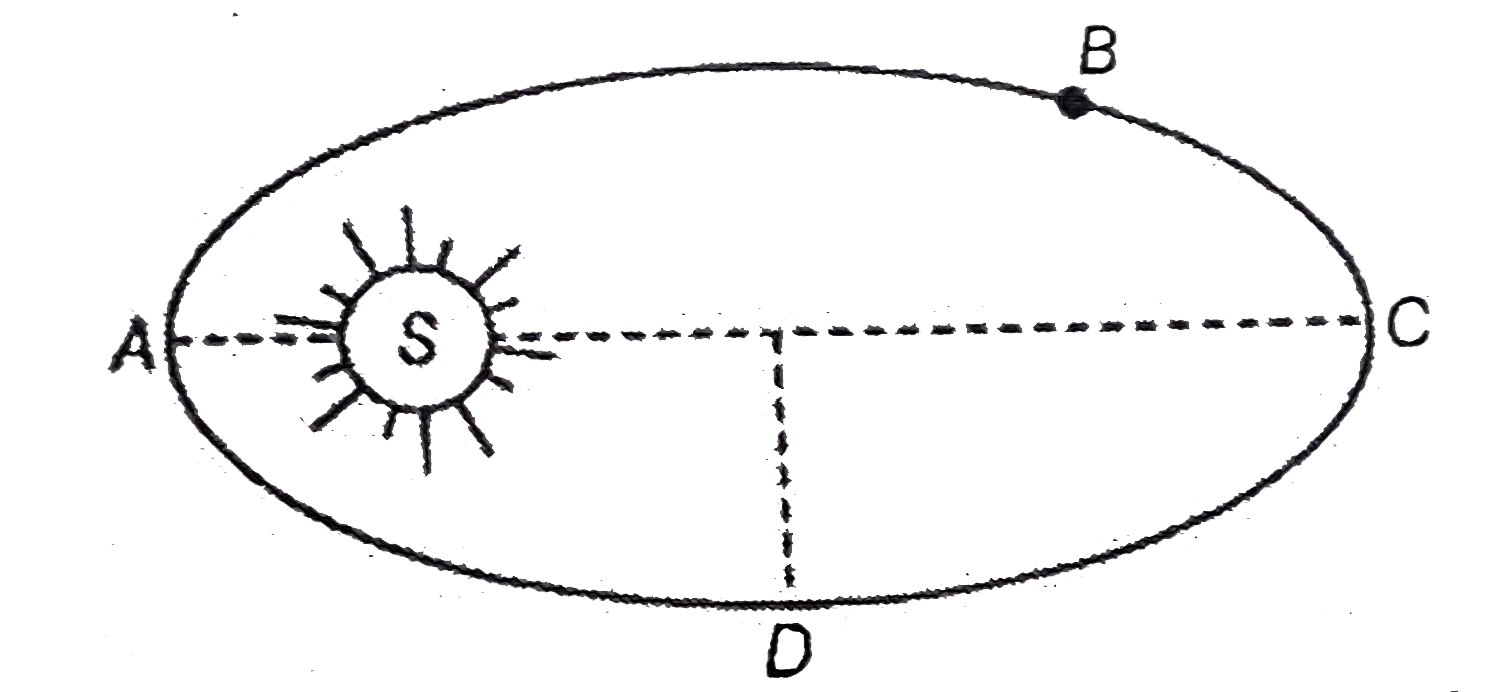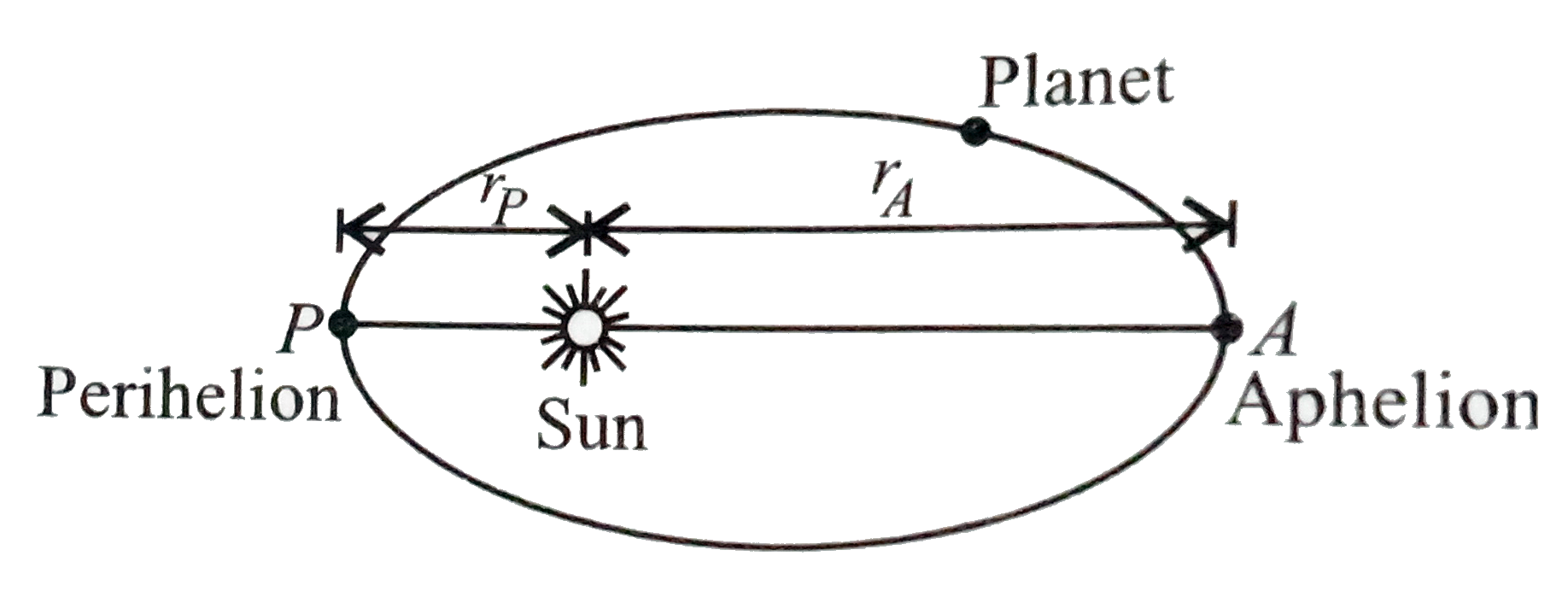Complete Solutions to Kepler Laws of chapter GRAVITATION of Class 11 book with complete answers and questions
| Class 11 | PHYSICS |
| Chapter | GRAVITATION |
| NCERT FINGERTIPS | Kepler Laws |
| Number Of Questions | 17 |
| Academic Year | 2023-24 |
Which of the following orbits is a possible orbit for a planet?
View SolutionKepler's second law is a consequenc of
View Solution_S01_025_Q01.png)
The figure shows elliptical orbit of a planet m about the sun S. the shaded area SCD is twice the shaded area SAB. If `t_(1)` be the time for the planet to move from C to D and `t_(2)` is the time to move from A to B, then:
View SolutionThe aeral velocity and the angular moementum of the planet are related by which of the following relationos? (where `m_(p)` is the same mass of the planet)
View SolutionA planet revolves in elliptical orbit around the sun. (see figure). The linear speed of the planet will be maximum at

View SolutionWhich of the following Kepler's laws is also known as harmonic law?
View SolutionIf a graph is plotted between `T^(2) and r^(3)` for a planet, then its slope will be be (where `M_(S)` is the mass of the sun)
View SolutionA geostationary satellite is orbiting the earth at a height of 6R above the surface of the earth, where R is the radius of the earth. The time period of another satellite at a height of 2.5 R from the surface of the earth is …… hours.
View SolutionAssuming that earth and mars move in circular orbits around the sun, with the martian orbit being 1.52 times the orbital radius of the earth. The length of the martian year is days is
View SolutionA saturn year is 29.5 times the earth year. How far is the saturn from the sun if the earth is `1.5xx10^(8)` away from the sun?
View SolutionThe period of moon's rotation around the earth is approx. 29 days. IF moon's mass were 2 fold its present value and all other things remain unchanged, the period of Moon's rotation would be nearly
View SolutionAverage distance of the earth from the sun is `L_(1)`. If one year of the earth =D days, one year of another planet whose average distance from the sun is `L_(2)` will be
View SolutionA planet revolves around the sun in elliptical orbit of eccentricity 'e'. If 'T' is the time period of the planet then the time spent by the planet between the end of the minor axis and close to the sun is
View SolutionA planet revolves around the sun in an elliptical orbit. If `v_(p)` and `v_(a)` are the velocities of the planet at the perigee and apogee respectively, then the eccentricity of the elliptical orbit is given by :
View SolutionAn artificial satellite is in an elliptical orbit around the earth with aphelion of `6R` and perihelion of `2R` where `R` is radius of the earth `=6400 km`. Calculate the eccentricity of the elliptical orbit.
View SolutionIn the question number 15, the ratio of the velocity of the satellite at apogee and perigee is
View SolutionA planet orbits the sun in an elliptical path as shown in the figure. Let `v_(p) " and " v_(A)` be spped of the planet when at perohelion and aphelion respectively. Which of the following relations is correct ?

View Solution
Kepler Laws questions and complete solutions for chapter GRAVITATION of NCERT FINGERTIPS PHYSICS (HINGLISH) of Class 11
All Exercises from NCERT FINGERTIPS Class 11 PHYSICS GRAVITATION
- Acceleration Due To Gravity
- Acceleration Due To Gravity Below And Above The Surface Of Earth
- Assertion And Reason
- Earth Satellite
- Energy Of An Orbiting Satellite
- Escape Speed
- Geostationary And Polar Satellites
- Gravitational Potential Energy
- Higher Order Thinking Skills
- Kepler Laws
- Miscellaneous Question
- NCERT Exemplar
- The Gravitational Constant
- Universal Law Of Gravitations
- Weightlessness